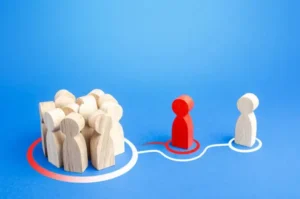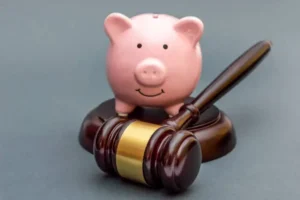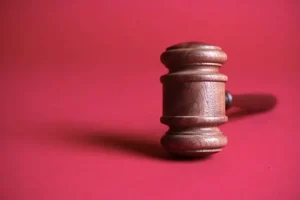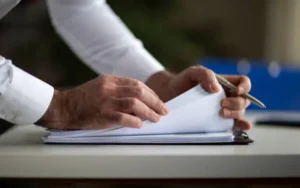Obstructing official business means getting in the way of important government tasks and activities. This can happen when someone tries to stop government officials or workers from doing their jobs properly. It’s like putting obstacles in the path of things that need to be done for the community. Imagine if everyone’s work in the government was slowed down or disrupted – that would create problems for everyone. So, it’s crucial to understand what obstructing official business is and why it’s important to let the government operate smoothly for the well-being of our community.
Types of Obstruction

Obstructing official business can happen in different ways. One way is through physical obstruction, which means physically getting in the way of government tasks. For example, blocking a road during an important government event can create problems for everyone. This can lead to consequences like fines or even being arrested. Another way is verbal obstruction, which involves causing issues through words.
When people interfere with communication during official matters, it can create confusion and disrupt important processes. There are legal consequences for this too, as interfering with government communication can lead to serious problems for individuals involved. It’s important to know about these types of obstruction to ensure a smooth and trouble-free operation of government activities.
Real-world Examples

Let’s look at some real situations where obstructing official business caused problems. In one instance, people blocked the entrance to a government building during an important meeting, making it hard for officials to go inside. This led to consequences like fines and legal actions against those involved. Another example is when someone disrupts a city council meeting by loudly interrupting the discussion.
This kind of verbal obstruction resulted in the person being removed from the meeting, and there were repercussions like warnings and restrictions on attending future meetings. These examples show that obstructing official business can have serious outcomes, affecting both individuals and the smooth functioning of important government activities. Understanding these real cases helps us see why it’s important to avoid such disruptions for the benefit of everyone.
Impact on Society

When people obstruct official business, it doesn’t just affect the government; it also creates problems for everyone in the community. Imagine if a road is blocked during an emergency because of someone’s actions – it could delay help from reaching people who need it. Obstruction disrupts public services that we all rely on, like schools, hospitals, and emergency services.
In one case, a protest blocking a busy street led to ambulances having trouble reaching the hospital quickly. This delay had a real impact on the well-being of those in need. These examples show how obstruction can have serious consequences for the general public, making it essential to understand and prevent such disruptions for the smooth operation of services that benefit everyone.
Legal Consequences

Every place has its own rules when it comes to obstructing official business, and it’s crucial to know about them. Different areas have specific laws and regulations that define what counts as obstruction. These laws help maintain order and ensure that government activities run smoothly. If someone is found guilty of obstructing official business, they may face penalties like fines or even imprisonment.
These consequences are in place to discourage such actions and protect the proper functioning of government operations. Law enforcement plays a crucial role in dealing with obstruction. They are responsible for enforcing these laws and taking appropriate actions against those who hinder official tasks. Understanding local laws and the potential legal consequences helps emphasize the importance of respecting the rules to keep our communities safe and well-managed.
Challenges in Prosecution

Proving obstruction in a legal case can be tricky because gathering evidence isn’t always easy. Sometimes, it’s hard to show exactly how someone interfered with official business. This difficulty in gathering evidence makes it challenging for prosecutors to build a strong case. Another important aspect is balancing civil liberties, like free speech and assembly.
While we have the right to express our opinions and gather peacefully, it’s essential to find a balance. This means addressing concerns related to obstructing official business without compromising our basic freedoms. It’s like walking a tightrope – making sure that people can voice their thoughts without causing harm to the smooth running of government activities. Finding this balance is crucial in navigating the challenges involved in prosecuting cases of obstruction.
Strategies for Prevention

To stop obstruction before it happens, two key strategies come into play. First, through public awareness campaigns, citizens are educated about the consequences of obstructing official business. Just like we learn about traffic rules to keep roads safe, understanding these consequences helps everyone contribute to a smoothly running community.
Second, collaborative efforts involve working together with communities to prevent obstruction. When people and officials work hand in hand, problems can be identified and resolved more effectively. It’s like a team effort – everyone playing their part to make sure that government tasks can be carried out without disruptions. These prevention strategies focus on building a shared understanding and cooperation to create a community where everyone can thrive.
Conclusion
In wrapping up our discussion on obstructing official business, let’s recap the important points. Obstruction, whether physical or verbal, can cause problems for the whole community by disrupting government activities. We’ve seen how it can lead to legal consequences and impact public services. As we conclude, there’s a call to action. Everyone must cooperate with law enforcement to prevent obstruction.
Just as we work together for the well-being of our community, respecting official business ensures that government tasks can be carried out smoothly. By understanding the consequences and collaborating, we contribute to creating a safer and more effective environment for everyone. So, let’s encourage cooperation and emphasize the importance of respecting official business to build a community that thrives.
FAQs
#1. What is considered obstructing official business?
Obstructing official business involves actions that interfere with government tasks or activities. This can include physical or verbal disruptions that hinder the smooth functioning of official duties.
#2. What are the legal consequences of obstructing official business?
Legal consequences for obstructing official business vary by jurisdiction but may include fines, imprisonment, or both. These penalties are in place to deter individuals from disrupting government operations.
#3. How can obstruction impact the general public?
Obstruction can disrupt public services, causing delays and problems for the community. For example, blocking roads during emergencies or interrupting government meetings can have real and immediate consequences for the well-being of individuals.
#4. What challenges exist in prosecuting cases of obstruction?
Prosecuting obstruction cases can be challenging due to difficulties in gathering evidence that proves the interference. Balancing civil liberties, such as free speech and assembly, also poses a challenge in ensuring fair legal proceedings.
#5. How can communities prevent obstruction of official business?
Prevention strategies include public awareness campaigns to educate citizens about the consequences of obstruction. Collaborative efforts involve working together with communities to identify and address issues before they escalate, promoting a cooperative and well-functioning environment.


